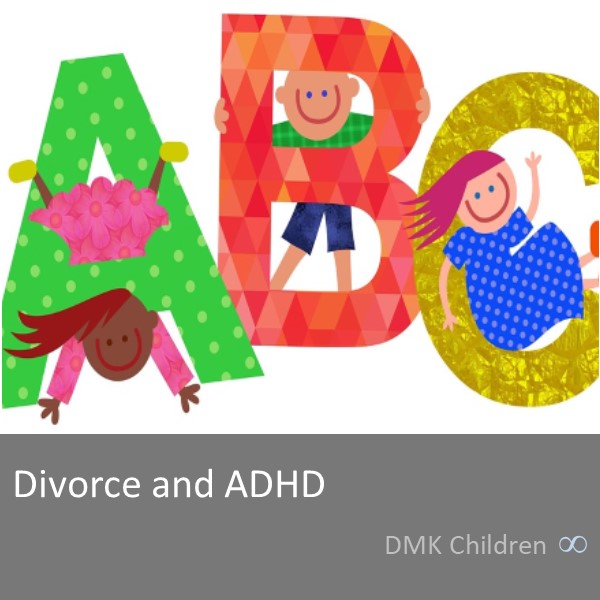Children go though more changes in physical and mental development than adults. While we may reflect on times when we were younger, we easily forget the impact of issues children face on a daily basis.
Making adjustments
Adding a life changing event that splits their upbringing into two households is a major rift in an already complicated time full of changes, discovery and fears.
As a parent, you may question your child's behavior and actions more while going through a divorce. While it's recommended to be aware of your child's feelings and changes in behavior try not to overcompensate due to guilt associated with the divorce, your behavior leading up to the divorce or changes to your child's living environment that have presented less stability or comforts. It may cause you to react or overreact to behavior that may in fact be completely unrelated to your divorce.
Should you and your child seek therapy?
It is important to understand that even if the impact of the divorce affects your child, they are resilient and capable; with your love and support, they will get through these changes with little to no long-term detriment. If you feel your child has been affected by the happenings of your bad marriage and/or divorce, early intervention with the help of a trained therapist or counselor is recommended. It may be helpful, too, for each parent to seek counseling also.
But, how do you know when your child's behavior is a result of the divorce, requiring medical or behavioral intervention or completely normal for their growth and development? It isn't easy and even professional may disagree about diagnosis, medication and/or treatment for issues that occur following situations such as divorce.
Could my child have ADHD?
ADHD (Attention Deficit Hyperactivity Disorder) is a common childhood diagnosis. It is a neurodevelopmental disorder characterized as a person's inability to stay on task with excessive excitability or activity that results in a difficulty in concentrating. Often, the individual has difficulty regulating his/her emotions and demonstrates little to no regard for consequence of inappropriate behavior.
Divorce has many aspects that disrupt a child's life at the very core of his/her upbringing. It is very common for children to have both physical and behavioral changes before, during and after the divorce has occurred. Distraction at home or school can result from family turmoil, moving, changes in schools, changes in household responsibilities, family financial problems, distracted-depressed or stressed parents, etc. The symptoms of ADHD and behavior changes as a result of the divorce may very similar and lead teachers and parents to think their child is suffering from the disorder.
It is possible for your child to be affected by the disorder as well as the common distractions of divorce. According to an article, "One in ten kids diagnosed with ADHD" on WebMD about 6.4 million children aged 4-17 have been diagnosed with ADHD at some point in their lives; a 53% increase over the last decade. This percentage of increase lends credence to the fact that ADHD awareness is far more prevalent today than when we were children. It may make us wonder how many of us may have avoided the common pitfalls associated with undiagnosed disorders such as ADHD.
Educators, physicians and parents have the opportunity to recognize, intervene and treat this disorder so that the child can assume the best opportunity in education and development for ongoing life successes. In a 1999 article on www.cdc.gov, ADHD, Long-Term Outcomes, Comorbidity, Secondary Conditions and Health Risk Behaviors, it indicated the lack of appropriate treatment at that time and the poor outcome for the failure of treatment to include significant liability as a burden to society, an inadequate social integration and increased risk for educational success.
It is clear the treatment of ADHD is imperative in order to ensure your child does not have a lessor opportunity to the same successes and stability in his/her life. The treatment may or may not include medication as part of the therapeutic process. However, a diagnosis is necessary in order for your child and others to understand, cope and employ effective measures to avoid the problems associated with the disorder. Untreated, this disorder may contribute to the higher frequency of substance abuse and untreated mental disorders.
In order to determine if your child has ADHD, is just distracted and/or "demonstrating poor behavior" due to family changes or both; you could follow the following guide:
Possible ADHD Indications:
It is never easy to be told your child may be suffering from mental or physical disorders. At first, you may naturally want to disregard your initial concerns or the concerns of others. Some may immediately want to seek treatment and realize high expectations for the treatment.
Regardless of your initial reaction and concerns, recognize that your child is struggling and some intervention is needed in order to assist your child in maintaining focus, good behavior and controlling his/her emotions. Ignoring the problem will not help. Seeking the support of a trained family therapist or counselor with experience counseling children with ADHD is helpful with or without physician prescribed medication.
While some children may respond very well to alternative treatments to avoid medication; most will respond better to the varied medications available for the symptoms associated with this disorder. The medication will be a tool to assist your child in developing a process to cope with this disorder now and in the future.
Indications
- Has an educator, physician or caregiver brought up concerns about your child's behavior as related to ADHD?
- Does your child have a difficult time staying on task or focused at home?
- Is your child 12 years of age or younger?
- Does your child demonstrate this behavior in two or more settings?
- Has the behavior been consistent for 6 months or longer?
- Does your child have a difficult time controlling his/her emotions?
Possible Divorce Distractions:
It isn't easy when you realize your child is suffering as a result of your divorce. It may cause you to overreact, when in fact some basic parental strategies to helping your child cope may be all your child needs. A family counselor or therapist may still be helpful along with recommendations by your child's teacher or caregiver.
Common problems associated with divorce
- Has your child's behavior changed significantly around the time of your divorce?
- Is the behavior your child is currently demonstrating out of character?
- Have your child's caregivers or teachers indicated your child is generally behaving normally in the classroom or daycare setting?
- Have your child's caregivers or teachers indicated some concerns over recent, unusual changes to behavior or grades (consistent or sporadic)?
- Is the behavior inconsistent or specific to changes as they occur at home (ie custody changes, parental distractions, nutritional modifications, stresses at home)?
- Has your child's sleep pattern changed or been affected?
Possible ADHD with Anxiety & Distractions Associated with Divorce:
If your child has always been easily distracted, had contact from previous caregivers/educators with concerns and/or your child has become completely unable to behave and function in his/her normal setting, then it is possible your child has undiagnosed ADHD and is now suffering from additional affects associated with divorce. Additional anxiety can either share symptoms of ADHD or make them worse. You should seek the advice of a therapist or counselor along with recommendations from your child's pediatrician. If your child is school-age, your child's school may also have resources for which you may refer.
- Has your child always demonstrated an inability to focus, stay on task or maintain activities for a set period of time?
- Have previous teachers brought similar issues about your child's behavior, grades or inability to concentrate as your child's current teachers?
- Has the school indicated your child must be treated for ADHD in order to attend normal classes?
- Does your child have a difficult time sleeping, eating or communicating at an appropriate age level?
- Is your child completely unable to sit still, seem "out of control" or started to behave inappropriately for his/her age or setting?
- Does your child cry, scream or hit as a result of uncontrolled emotions?
- Does your child demonstrate most of the indications as noted in both Divorce Distractions and Possible Indications of ADHD?
Summary
The most important thing to remember is that your child, like you, is going through a difficult, life changing experience. Children are already going through multiple transitions of childhood like puberty and adolescence. Such issues from divorce along with these normal changes can easily overwhelm even the most well adjusted child.
If your child is diagnosed with ADHD or just demonstrates behavior indicative of the disorder, it's important to practice open communication with your child and other's who are with him/her on a daily basis. These individuals may include teachers, coaches and the other co-parent. Remember not to overreact to abnormal behavior, but it's important to employ some reasonable methods in an effort to reduce the severity. A therapist or counselor may be helpful in these situations if normal parenting methods fail to help. If ADHD is suspected a psychiatrist or family physician will be able to help with a diagnosis and recommendations for treatment to include the possibility of medication.
Disclaimer
The information provided by respective owner's ("we", "us" or "our) on Divorce Me Knot (referenced also as "DivorceMeKnot.com", "dmk", "DMK", "OurDMK.com", "OurDMK", "application" or "site") is for general informational purposes only and is subject to change with or without notice. All information on our site and application is provided in good faith, however we make no representation, guarantee or warranty of any kind, express or implied, regarding the accuracy, validity, adequacy, reliability, availability or completeness of any information on the site or application.
The information in articles and all content on this site should not be considered psychological or behavioral health therapy, counseling or legal, financial, real estate, mortgage, insurance or professional advice. It should not be used in place of professional advice from a licensed professional or credentialed expert. Providers of content on this site, herein known as "Contributors" (inclusive of, but not limited to writers, bloggers, editors, employees, developers, graphic designers, advertisers, partners, affiliates, references, experts, professionals and site owners) are not legally liable for any misinformation, errors or omissions. Names, details and images may have been changed in the content of this site.
Under no circumstances should DMK and/or it's Contributors have any liability to users of the site for any loss or damage incurred to users as a result of the use of this site or application or reliance of any information provided on the site or application. Use of the site or application and reliance on any information from the sight or application is solely at the user's own risk.
For complete site disclaimers review "Disclaimers" on this site or click the link below.
Read Complete Site Disclaimers Here




 How to resolve AdBlock issue?
How to resolve AdBlock issue?